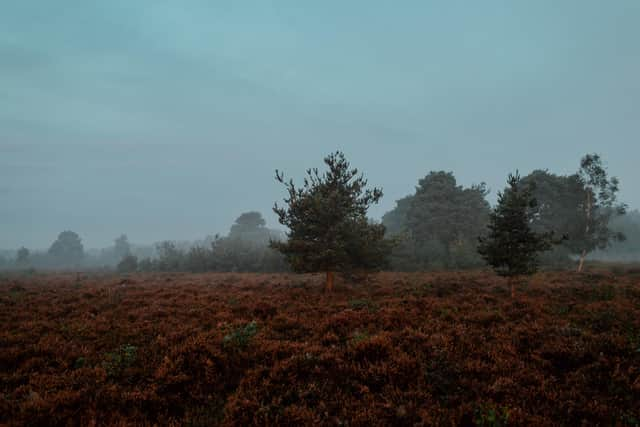How world-leading Biodiversity Net Gain strategy has been trialled in Yorkshire: Mike Burke
Councils across Yorkshire, like the rest of the UK, have set ambitions to tackle climate and environment emergencies.
By working in partnership with developers, planning authorities, and landowners, at Natural England we’re playing our part in finding solutions to allow sustainable development while improving the state of nature in England. In addition, health benefits associated with outdoor recreation in the UK were estimated to be more than £6 billion.
Advertisement
Hide AdAdvertisement
Hide AdThose living in Yorkshire will know this as well as anyone, with valued access to two great National Parks, the Yorkshire Dales and the North York Moors, as well as gorgeous local nature reserves, parks and greenspace.


Nature is also key to mitigating and adapting to climate change. We need to move towards nature restoration and nature recovery. Investing in nature will help us address the biodiversity crisis which sees the UK in the bottom 10 per cent globally for biodiversity loss. The planning system is an important vehicle for actively recovering nature and making a positive change, not just protecting it from further damage.
There are so many wonderful ideas and plans for how this could happen, and some are already starting. One example is Biodiversity Net Gain (BNG), which is a world-leading government strategy to develop land and contribute to the recovery of nature. This makes sure the habitat for wildlife is in a better state than it was before development.
Natural England plays an important role supporting the Department for the Environment, Food and Rural Affairs (Defra) as well as local councils with advice and delivery design for BNG. For example, in 2020, we selected statutory biodiversity credit pilots in preparation for mandatory BNG. The pilot scheme finished in 2023, and included Escrick Park Estate just south of York.
Advertisement
Hide AdAdvertisement
Hide AdBNG is expected to become mandatory for the majority of Town and Country Planning Act developments in early 2024.
BNG works by requiring developers to provide at least 110 per cent of the biodiversity value found on the site prior to their development. It can be delivered either fully or in part via on-site or off-site habitat. Development continues, nature gets a boost, and landowners are offered another way to fund nature recovery on their land. It is a win-win-win.
Landowners can sell off-site biodiversity units to developers, provided that the habitat sites are registered and validated. This offers an alternative income stream to help diversify and build resilience for their business. We’re already seeing some landowners making sales as developers prepare.
Beilby Forbes Adam, project lead for Escrick Park Estate, is both pragmatic and ambitious, like so many of the landowners we work with. The Estate is blessed with a National Nature Reserve, Skipwith Common, providing an excellent focus on how to connect parts of the landscape that are already rich in biodiversity.
Advertisement
Hide AdAdvertisement
Hide AdBeilby says one of the biggest lessons is “there is no one right action to take, it is all about finding the right measure for the right place”. A good principle for any land management.
For many farmers, the agricultural grading of soils is critical to their business models. In the same way that this informs where to place certain crops, soil grading helps to work out where BNG might make more sense from both an ecological and financial perspective.
Another of our pilots, Archie Ruggles-Brise from Spains Hall Estate in Essex, sums it up as: “Quality food production and serious nature restoration can happen hand-in-hand, it is a win-win.”
BNG can be a good option for land managers that helps balance nature recovery, food production, and development.
Advertisement
Hide AdAdvertisement
Hide AdDevelopers are incentivised to deliver all their biodiversity value on-site, if possible. The statutory biodiversity credit scheme aims to ensure that the pace of development in England is not impacted by the introduction of mandatory BNG by providing a last resort alternative if on-site and off-site options are unavailable. Money from sale of statutory biodiversity credits will be invested in habitat delivery in England.
The history of nature conservation in this country has had its ups and downs. One of the challenges has been the land-take associated with new development. People need homes, transport, energy, and industries that provide jobs, so we must find ways to provide for these alongside restoring our natural world. They must be delivered hand in hand.
Introducing nature positive development via BNG feels like one of those game changing moments that future generations may well thank us for. There is more to do to ensure we leave our children with an environmental legacy that enables them to flourish, but I hope this will be a big step forward.
Mike Burke is Director of Sustainable Development at Natural England
Comment Guidelines
National World encourages reader discussion on our stories. User feedback, insights and back-and-forth exchanges add a rich layer of context to reporting. Please review our Community Guidelines before commenting.